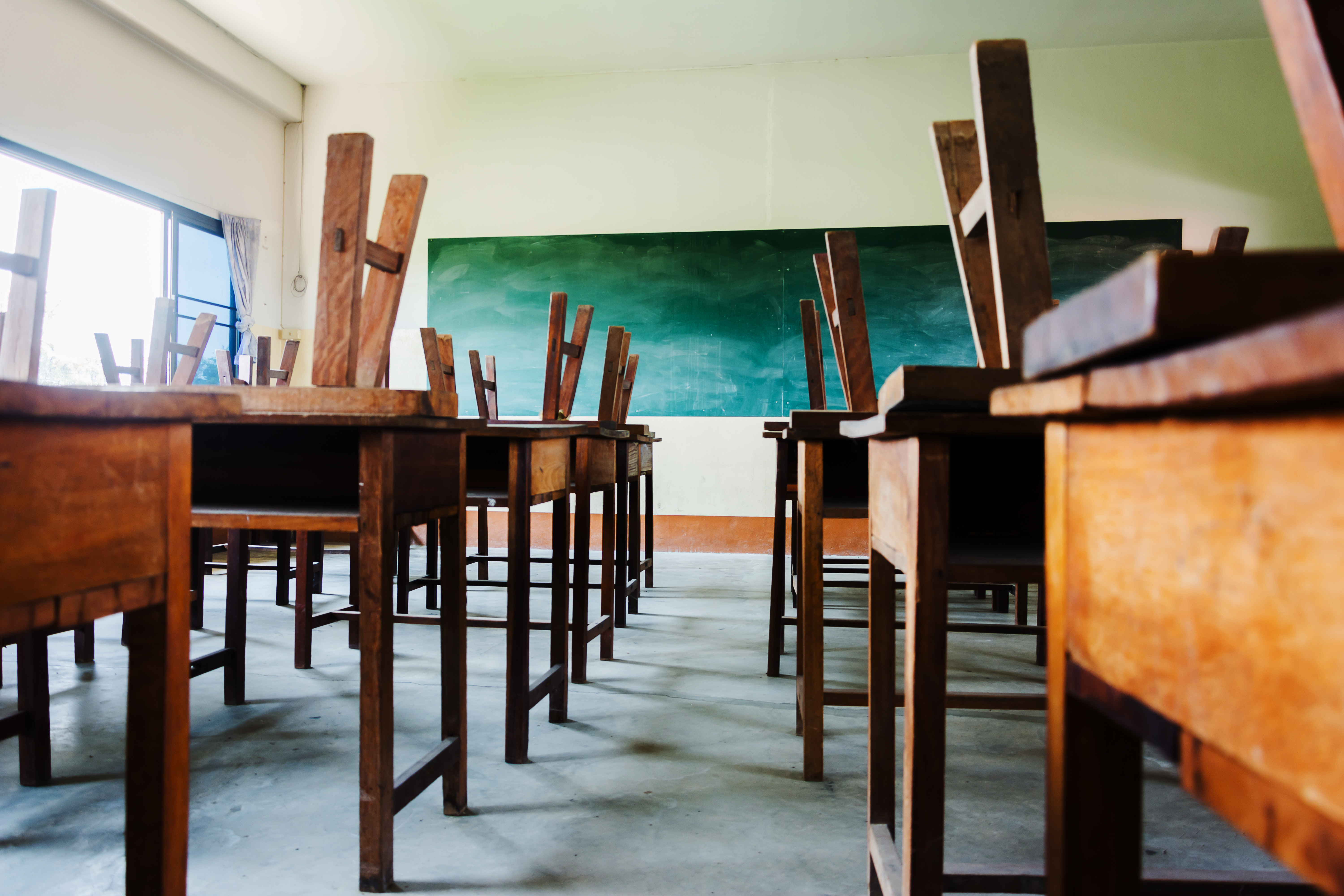Institutional Abuse
Could you be entitled to claim?
When vulnerable individuals—such as the elderly, children, or those with special needs—seek support, they often rely on services like children’s homes, educational settings, care homes, mental health institutions, or hospitals.
But, unfortunately, these institutions sometimes fall short in providing proper, and in some cases, the situation is worsened by staff members abusing their positions of power.
If you or a loved one has suffered abuse in an institution or organisation now or in the past, AbuseClaims.co.uk is here to help you seek the compensation you deserve.
Get in touch today
Institutional Abuse
Could you be entitled to claim?
When vulnerable individuals—such as the elderly, children, or those with special needs—seek support, they often rely on services like children’s homes, educational settings, care homes, mental health institutions, or hospitals.
But, unfortunately, these institutions sometimes fall short in providing proper, and in some cases, the situation is worsened by staff members abusing their positions of power.
If you or a loved one has suffered abuse in an institution or organisation now or in the past, AbuseClaims.co.uk is here to help you seek the compensation you deserve.
Get in touch today
Our experts are here to support and assist you
If you feel that you or a loved one has suffered institutional abuse, you may be entitled to bring about a claim.
Please contact one of our dedicated members of the team on 0113 306 9001, who will listen sympathetically to you and talk you through the claims process.
The team at AbuseClaims.co.uk will be able to give you confidential, no obligation, advice on the prospects of your case and whether you would be eligible to make a claim.


Types of Institutional Abuse
Unfortunately abuse of this type can occur when people in power take advantage of vulnerable individuals such as children or people with special needs. This can happen in the following types of settings:
- Schools
- Religious settings
- Sports teams
- After school clubs
- Scouts/Girl Guides
- Care homes
- Hospitals
You may be entitled to claim if you suffered physical, sexual or psychological abuse.
How do I make a claim?
This area of the law is highly specialised, and it is important to have a solicitor who has experience pursuing claims for compensation for historic sexual and physical abuse and assault.
Whilst these claims are personal injury claims, there are many aspects that differ from general personal injury claims. At AbuseClaims.co.uk, our team of legal experts are trained in dealing with these types of cases and will be able to offer seasoned advice for a successful outcome.
You can contact us for a free no-obligation chat. We will advise you whether you are eligible to make a claim and the likely level of damages.
If you decide to pursue the claim we will do all the work for you, keeping you informed at every stage.
For more information see our frequently asked questions below.
Call us today for a FREE Consultation
We work on a No-Win, No-Fee basis.
Frequently Asked Questions
Generally a civil claim for abuse or assaults can be concluded within 6-12 months. We will provide you with regular updates as your claim progresses.
Once we have been able to assess your case, we will give you an idea at the outset of the likely timescale.
It will very much depend on what evidence we need to gather, who we are bringing the claim against and also whether the claim can be settled without court proceedings.
It is very unlikely that you will have to face your abuser, either in court or at any point in the claim.
Most claims are brought against the institution or organisation rather than the individual abuser themselves.
The claim will be handled by the organisations insurers or solicitors. It is unusual for the person who abused you to have to give evidence in a civil case.
Most Institutional Abuse claims are actually brought many years after the abuse occurred. It is part of our job to investigate the school and establish whether it still exists.
Sometimes institutions change their name, have a change of ownership or move to a different address.
It may be that the organisation closed many years ago and the building has been demolished, but this does not necessarily mean that you cannot claim.
Our solicitors are experienced in investigating historic abuse claims. We will undertake thorough enquiries to work out who the claim should be brought against and to obtain the information we need to pursue the case.
Certainly not! It is not unusual for a child or young person who is suffering abuse to ‘go off the rails’ or for their school performance or behaviour to decline.
In fact, evidence of this in your records can often support your case if the timing fits with when you say the abuse was happening.
Yes. As the parent you will be able to deal with the claim on behalf of your child. Where a person under 18 brings a claim for compensation, they need to have what is known as a ‘Litigation Friend’.
If any compensation is recovered, it will in almost all cases be held by Court in a special account until the child reaches 18.
Similarly, if the person who was abused is unable to speak to us due to old age or disability, a close family member can seek advice for them.
Before deciding whether to pursue a claim, it’s crucial to seek initial legal advice to evaluate the merits of your case. At AbuseClaims.co.uk, we offer a free assessment and are happy to discuss your situation at no cost.
If a solicitor determines that your claim has merit, it’s also important to consider the potential impact on your health.
Litigation can be a stressful process that may negatively affect your well-being. While we cannot provide medical advice, we must inform you that pursuing a claim may bring up traumatic memories of the abuse, which could impact your mental health.
Please keep in mind that the primary outcome of a successful claim is financial compensation. While you may hope for answers through litigation, most cases settle out of court, which could leave some of your questions unresolved.
Your doctors may advise that revisiting the trauma could hinder your recovery. The decision to proceed should be made in consultation with your medical advisors and is entirely up to you.
If you choose to move forward with a claim, our team will do everything possible to support you and minimise the stress throughout the process.
Each claim is different. We will assess your claim and give you an idea at the outset of the likely compensation you can expect to receive.
A civil claim for sexual or physical abuse can include the following types of compensation:
- General damages – An award of money for the abuse/assaults themselves and for the pain, suffering and any psychological effects.
- Special damages – An award for any specific financial losses we can prove, such as loss of earnings or the costs of any treatment or counselling.
- Aggravated damages – An additional award of money in certain cases where the court considers that there has been additional distress caused by the manner in which the abuse occurred.
AbuseClaims.co.uk is committed to handling your abuse claim on a ‘no-win, no-fee’ basis. If your claim is unsuccessful, you won’t owe us anything.
If your claim is successful, we will take a percentage of the compensation, meaning we only receive payment when we have achieved a positive outcome for you.
You will have a dedicated advisor who will manage your claim from start to finish, assisting with any questions or concerns along the way. If you prefer, we can assign a female advisor to handle your case.
Your case handler will also provide regular updates throughout the process, ensuring that your experience is as stress-free and smooth as possible.
The victim of the negligence can bring about a claim in their own right. However, it is often sadly the case that the victim is either unable to bring about a claim or has sadly passed away.
In such circumstances, a claim can be brought on their behalf either by an appropriate person or a friend if the victim is still with us. If the victim has passed away it can be brought by the executor of the estate or a surviving dependent if the victim.
Our specialist team will be able to discuss whether you have a right to bring about a claim – so if you or a loved one have been affected, do not hesitate to contact us.
Given the complexities involved in pursuing a Clinical Negligence claim, they can often take 18-24 months to conclude and longer if Court proceedings have to be issued.
Our investigations start by obtaining all relevant records and protocols before approaching independent medical experts for their opinion. We will provide you with regular updates on the progress of your case to ensure that you are kept up to speed.
It is often difficult to value clinical negligence claims at their outset, given the complexities involved. However, we will pursue two forms of compensation for you:
General damages – An award of money for the pain and suffering you have endured as a result of the negligence.
Special damages – An award for all of your out-of-pocket expenses, such as travel, medication costs, loss of earnings, and treatment costs both past and future. This list is not exhaustive and is very case-specific.
The majority of Clinical Negligence cases are funded by a Conditional Fee Agreement, more commonly known as a ‘no-win, no-fee’ agreement. This means that there will be nothing to pay up front and nothing to pay if the claim has been lost.
If you are successful in your claim a deduction will be taken from your damages to cover the success fee and the shortfall in legal fees.
It may also be the case that an After The Event (ATE) insurance policy will be obtained to cover the costs of expensive medical reports and investigations.
If an ATE insurance policy has to be obtained the cost of the same will be discussed with you at the appropriate point.

